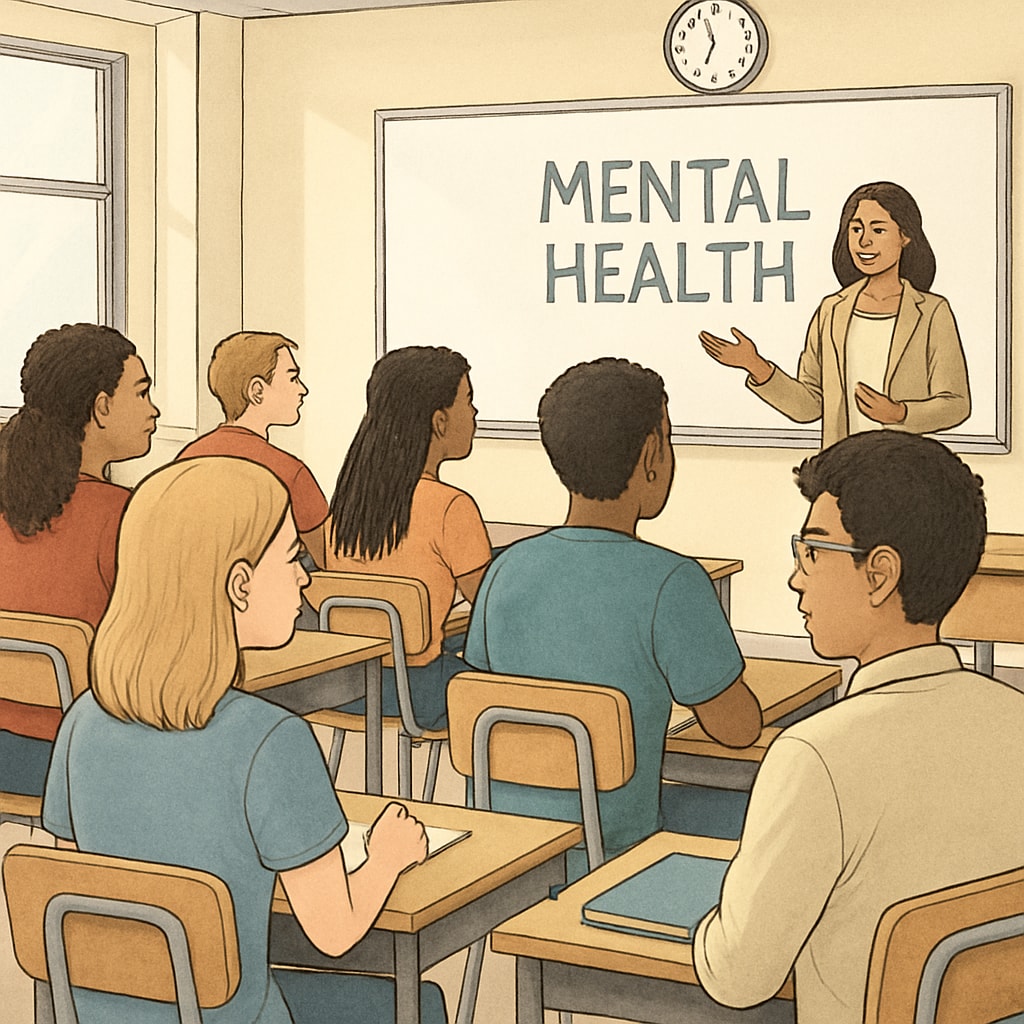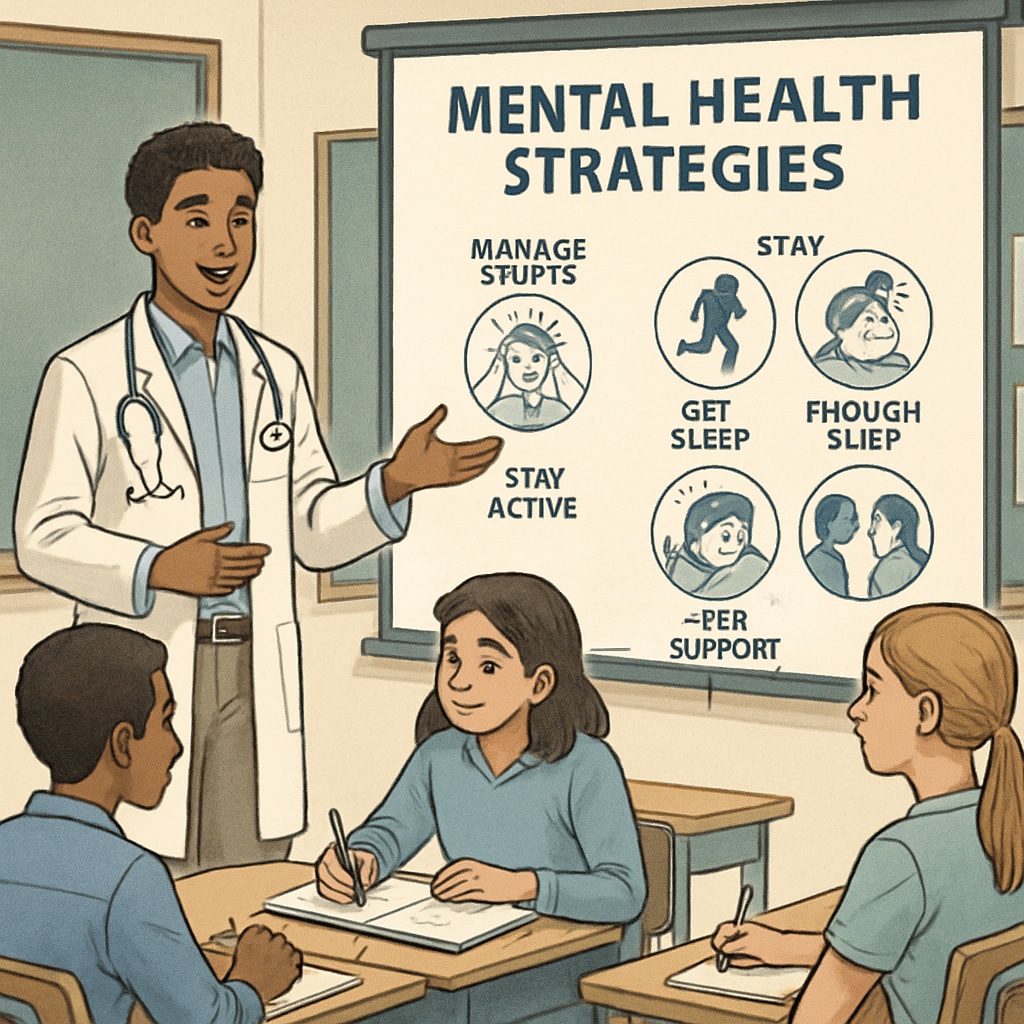Promoting mental health awareness among high school students has become increasingly vital in today’s fast-paced and demanding world. For medical students, organizing a mental health seminar not only provides an opportunity to apply their knowledge but also creates a platform to address the concerns of young minds. In this article, we will discuss how medical students can effectively host mental health seminars for high school students, providing actionable steps for planning, content development, and evaluation. These seminars can serve as a crucial bridge to better mental well-being while fostering community connectivity.
Understanding the Needs of High School Students
Before diving into the planning process, it’s essential to understand the unique challenges that high school students face. Adolescence is a time of significant emotional, social, and academic pressure, making students more vulnerable to mental health issues such as anxiety, depression, and stress. For medical students, this means creating content that is not only informative but also relatable and engaging.
To achieve this, consider conducting a pre-event survey or consulting with teachers and school counselors. These steps can help identify the specific mental health topics that resonate with the student audience. For example, topics like coping strategies for academic stress or managing social pressures can be particularly relevant.

Planning and Designing the Seminar
Once the needs of the target audience are identified, the next step involves meticulous planning. Here’s a step-by-step guide to designing an impactful seminar:
- Set Clear Objectives: Decide on the seminar’s focus, such as awareness, coping mechanisms, or stigma reduction. Ensure the objectives are specific and measurable.
- Collaborate with Schools: Partner with high schools to secure a venue and determine an appropriate time for the event. Collaboration also ensures better student participation.
- Develop Engaging Content: Use evidence-based information paired with relatable examples. Incorporate interactive elements such as Q&A sessions, role-playing activities, or group discussions to keep the audience engaged.
- Choose the Right Tools: Utilize multimedia tools like slideshows, videos, and handouts to make the content visually appealing and easier to understand.
It’s also essential to prepare a script or outline to maintain a logical flow during the presentation. Engaging storytelling techniques can be particularly effective in capturing the students’ attention.
Delivering the Seminar Effectively
Effective delivery is critical to ensuring that the seminar achieves its intended impact. Medical students should focus on creating a welcoming and non-judgmental atmosphere where participants feel comfortable sharing their thoughts. Here are some tips for effective delivery:
- Start with an Icebreaker: Begin the session with a light-hearted activity or question to put students at ease.
- Use Simple Language: Avoid medical jargon and use terms that are easy for high school students to understand.
- Encourage Interaction: Ask open-ended questions, invite students to share their experiences, and provide opportunities for peer-to-peer learning.
Additionally, it’s important to remain approachable and empathetic throughout the seminar. Students are more likely to engage with presenters who display genuine concern for their well-being.

Evaluating the Impact of the Seminar
Post-event evaluation is a crucial step in understanding the seminar’s effectiveness and identifying areas for improvement. Consider using the following methods to assess the impact:
- Feedback Forms: Distribute anonymous feedback forms to gather insights on what students found helpful and what could be improved.
- Follow-Up Activities: Organize follow-up sessions or provide resources for continued learning, such as brochures or links to reputable mental health websites.
- Collaborate with School Staff: Work with teachers and counselors to monitor any noticeable changes in student behavior or attitudes towards mental health.
By analyzing the collected data, medical students can refine their approach for future seminars, ensuring even greater impact.
Conclusion
Hosting a mental health seminar for high school students is a rewarding endeavor that allows medical students to contribute meaningfully to their community. By understanding the needs of their audience, designing engaging content, delivering it effectively, and evaluating its impact, medical students can build a bridge to improved mental well-being. These seminars not only empower high school students with essential knowledge and coping strategies but also inspire a culture of openness and support around mental health.
Readability guidance: This article uses concise paragraphs, a logical structure, and interactive elements to ensure clarity and engagement. The use of bullet points and images enhances comprehension and visual appeal, making it accessible for all readers.


